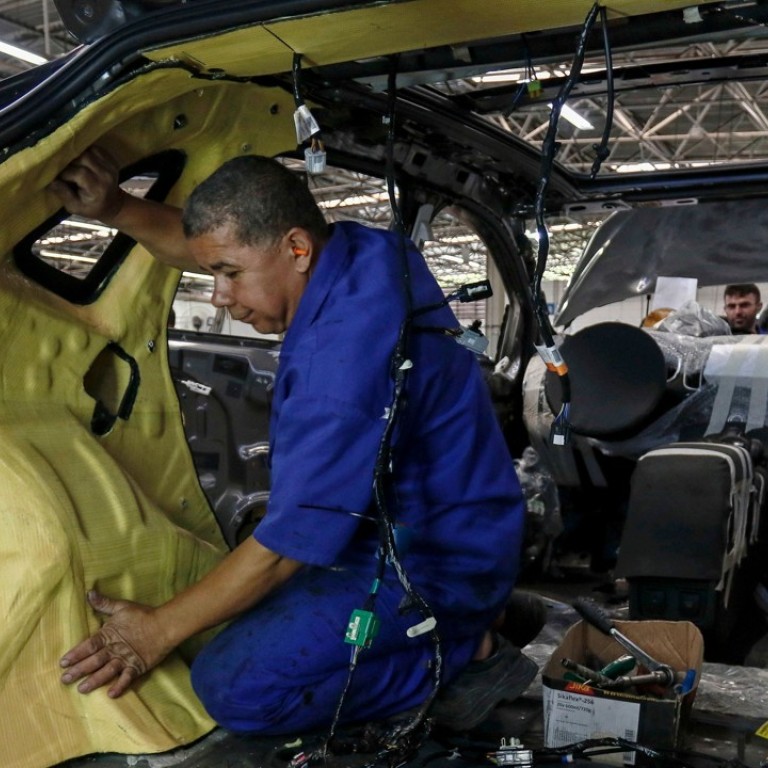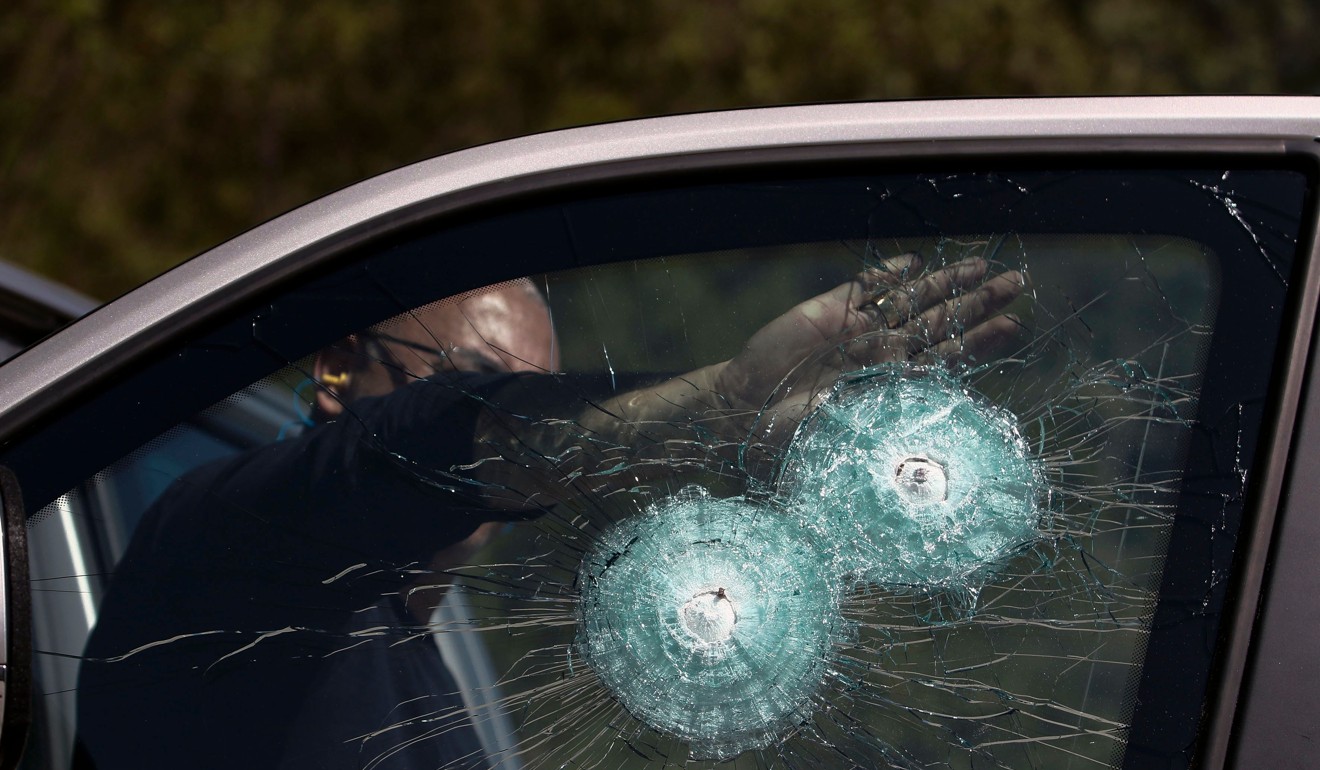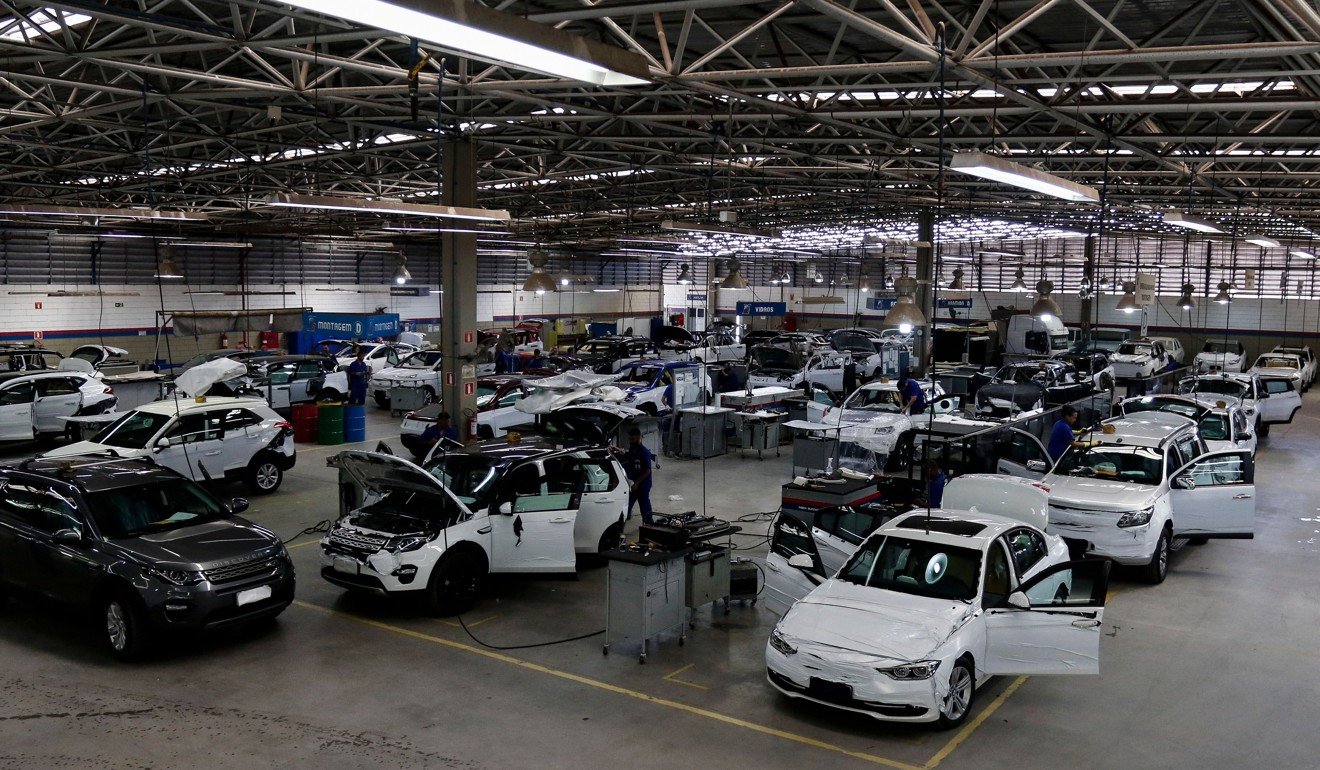
Bulletproof on a budget: forget the limo, Brazil’s bestselling armoured car is a Corolla
The market for low-cost and second-hand bulletproof cars is booming
Brazilians are as worried as ever about getting shot while driving, but have less money in a stagnant economy to spend on protecting themselves.
Enter the second-hand bulletproof car.
Whether to provide genuinely-needed protection or just to show off, the bulletproofed personal vehicle has usually been associated with the rich, but in Brazil, armoured cars are far more common than in most countries.
Industry experts consider Brazil’s US$245 million bulletproofing industry the largest in the world.

“I like cars, but I don’t feel comfortable spending a lot of money on one,” said lawyer Mauricio Paulo, who drives a second-hand bulletproof Volvo XZ 60.
This is the 40-year-old Paulo’s fourth armoured vehicle.
He got his first armoured car after being robbed while he stopped at a traffic light. The birth of his daughter 18 months ago convinced him he still needs one – while staying frugal.
“I need a bulletproof car because of lack of safety,” he said. “I went for a used car because I’m going to spend less money to move around safely.”
To modify a car costs around US$13,000, pretty much like buying an additional vehicle.
Going for an already used and already armoured vehicle gets the price tag down by between 10 and 40 per cent, according to varying estimates from dealers and owners.

But even in a tough climate last year, Brazil’s armouring industry still put out over 15,000.
Armoured private vehicles are especially common among the middle class in the economic hub of Sao Paulo, regardless of the fact that the mega-city is one of the safest parts in an often extremely violent country.
Almost three quarters of bulletproofing work is done in Sao Paulo state, and most of the country’s 150,000 armoured vehicles are also in the state, according to the bulletproofing association Abrablin.
Neither Abrablin nor the used car sellers’ body Fenauto keeps track of second-hand armoured sales.
But industry experts say it is a real trend here.
“This year, the used car market is hot,” said Fabio Rovedo de Mello, director of a Sao Paulo-based bulletproofing company.
“Because of the situation the country is going through, the demand for used cars has gone up.”
Sales of new cars in general plummeted to a 10-year low in 2016 in Brazil. The niche market in new armoured cars mirrored the trend, dropping 20 per cent last year, compared to 2016.
“When the new market doesn’t sell, there’s higher demand for used cars, because a person can’t afford to buy a new one,” said Abrablin president Marcelo Christiansen, who also heads up a bulletproofing firm.
“Armoured cars are a lot more expensive, so the option was to go for a used car that fell within my budget,” said Eliane Wakatsuki, 39, a manager at a hydroelectric firm, who was test-driving a used Mercedes-Benz GLA 200 at a luxury bulletproofing outfit.
Even those drivers who still buy new cars and get the armouring added are looking for deals.
Last year, the bestselling new car for bulletproofing was the Toyota Corolla, the cheapest and smallest that can handle armour, which can add up to 12 per cent to the vehicle’s body weight.
Owners say high crime rates drive them to seek extra security. Some international companies based in Brazil compel their expat employees to drive armoured vehicles.
But whether the cars are needed is another question.
Sao Paulo, Brazil’s richest state, had the lowest murder rate in the country in 2016, the last year for which comparative figures are available. There were 10.9 murders per 100,000 people against a national average of 30.3, while Sergipe state in the northeast had 64.7.
“Having a bulletproof car in Brazil is about status. People are more worried about status than they are about their own safety,” Christiansen said.
“The wife gets angry, because the neighbour has one and she doesn’t, so she tells her husband: ‘I need a bulletproof car.’”
For Paulo, the armoured vehicle may bring security, but also a troubled conscience.
“Those who have a bit more resources can protect themselves better,” he said. “Those who don’t can even lose their lives over something small.”
“You feel bad, because people are separated by their economic power in third-world countries and that’s sad.”

.png?itok=arIb17P0)